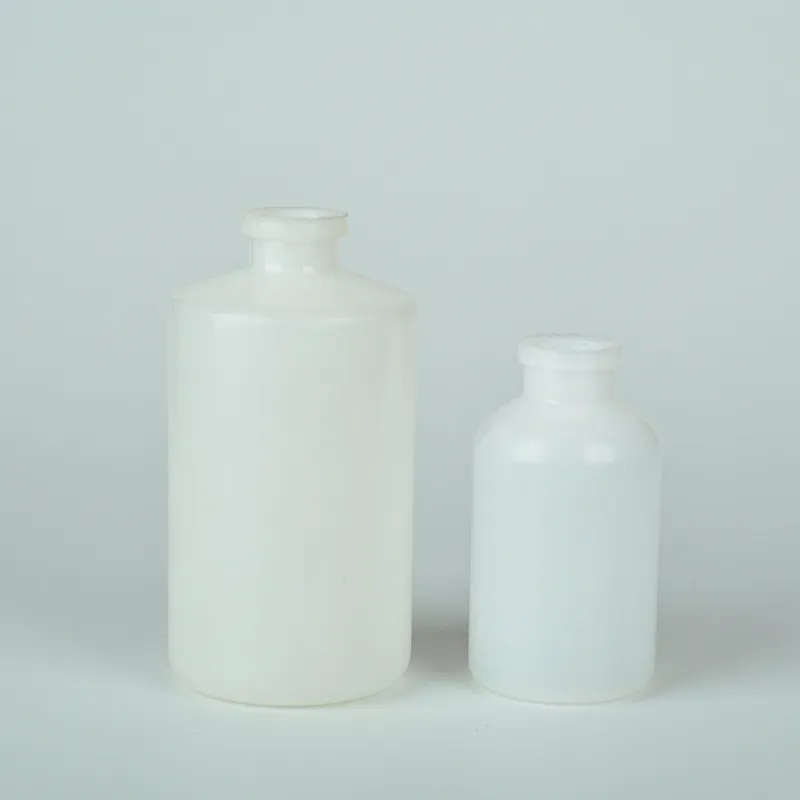Empty Liquid Medicine Containers for Convenient Storage and Use
The Importance and Innovation of Empty Liquid Medicine Bottles
In our modern healthcare system, liquid medication is prevalent, ranging from simple cough syrups to complex biological drugs. These medications are often stored in liquid medicine bottles, which, when empty, play a significant yet underappreciated role in both healthcare and environmental sustainability. Understanding the importance and innovative practices surrounding empty liquid medicine bottles can lead to better disposal, recycling, and even upcycling opportunities that benefit society and the environment.
Understanding Liquid Medicine Bottles
Liquid medicine bottles are designed with specific features to ensure the safety and efficacy of their contents. They often come in dark glass or opaque plastic to protect sensitive compounds from light exposure, while child-resistant caps prevent accidental ingestion by young children. The design and materials used in these bottles are crucial not only for preserving the medication but also for ensuring safe transport and storage.
Once the medication is finished and the bottle is empty, many people may simply toss these bottles into the trash. However, this raises questions about environmental responsibility. Liquid medicine bottles, especially those made from plastic, can take hundreds of years to decompose and can contribute to landfill overflow and ocean pollution. Therefore, it is crucial to consider sustainable practices for managing empty medicine bottles.
Importance of Proper Disposal and Recycling
Proper disposal of empty liquid medicine bottles is essential in minimizing environmental impact. Many communities have initiated pharmaceutical take-back programs where individuals can return unused or empty medication containers safely. These programs ensure that materials are disposed of correctly and reduce the likelihood of drugs contaminating water sources or harming wildlife.
Recycling is another important option for empty liquid medicine bottles. Many types of plastic and glass are recyclable, but the process often depends on local capabilities and regulations. For example, glass bottles can be recycled into new glass products, reducing the need for raw materials and energy. Likewise, plastic bottles can be repurposed into new items, such as clothing, carpets, or other packaging materials. It is vital for consumers to check local recycling rules and participate in programs that support sustainable disposal methods.
empty liquid medicine bottles

Upcycling and Creative Reuse
Beyond traditional recycling methods, empty liquid medicine bottles can find a second life through upcycling and creative reuse. Innovators and crafters have turned these bottles into unique products, ranging from planters to DIY craft projects. For instance, plastic medicine bottles can be transformed into stylish storage containers, while glass bottles can serve as decorative vases or candle holders.
Many households utilize empty medicine bottles for practical purposes. For example, they can be used to organize small items such as screws, buttons, or beads, creating a clean and efficient workspace. In more creative applications, these bottles can be painted and designed into arts and crafts project, allowing families to engage in fun activities while reducing waste.
The Role of Education and Awareness
Creating awareness about the proper management of empty liquid medicine bottles is crucial. Educational campaigns can encourage individuals to understand the impact of their actions, prompting them to recycle instead of discarding. Schools, community organizations, and healthcare providers can play a vital role in disseminating this information.
Moreover, encouraging pharmaceutical companies to take part in the solution is essential. By utilizing eco-friendly packaging and contributing to take-back programs, companies can demonstrate corporate responsibility and influence consumers to make sustainable choices.
Conclusion
Empty liquid medicine bottles may seem insignificant once emptied, but they represent an opportunity for environmental stewardship and creativity. By focusing on proper disposal and recycling, encouraging creative reuse, and fostering awareness, society can reduce the ecological footprint of these containers. In doing so, we not only contribute to a healthier planet but also embrace innovation and creativity in our daily lives. As awareness grows, we can envision a future where empty medicine bottles become symbols of sustainable practices rather than waste.
-
Aesthetic Makeup Spray Bottles | Fine Mist Empty RefillableNewsAug.19,2025
-
White Plastic Veterinary Vaccine Vials | Lab Liquid BottlesNewsAug.18,2025
-
Plastic Medicine Liquid Bottle: Secure Flip Top Drug VialsNewsAug.17,2025
-
Durable 250ml Blue Plastic Vaccine Vial for Lab & Vet UseNewsAug.16,2025
-
Sterile Virus Sample Tubes: Secure & Reliable Specimen CollectionNewsAug.15,2025
-
White 250ml Plastic Vaccine Vial for Lab & Vet MedicineNewsAug.14,2025
























